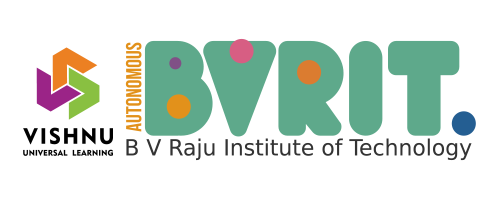Overview
About Department
The department of Electrical & Electronics Engineering has started the B. Tech Program in the year of 1997 with the intake of 40 and the current intake is 60. The department also offers a two-year full-time M. Tech program in Electrical Vehicle Technology from the academic year 2023 – 2024 with an intake of 12, admitted through GATE / TS PGECET, the common entrance test.
Modern research and innovative teaching are trademarks of the Department of Electrical & Electronics Engineering. The department offers exceptional research facilities together with outstanding classroom instruction. With an abundance of teaching and research expertise, our faculty members strive to provide the best possible education. Through the identification of areas of interest and participation in supported research initiatives and assistance from consultants, it also fosters active industry-institution engagement.
The major research areas include, AI applications to power systems, Demand Side Management System, Application of Soft Computing methods in Power System, IoT Applications in Electrical Engineering, Reliability analysis of PV Inverters, Grid Integration of Solar PV system, Modelling of Power Converters for PV power conversion, Soft computing Techniques and applications to power electronics, Electric Vehicle charging infrastructure, Real-Time Monitoring & Data Analysis of a Campus Distribution Grid, Smart Distribution System etc.
- The Electrical and Electronics Engineering Department in BVRIT, established in 1997 with an intake of 40.
- Granted provisional accreditation for Three years for the period 10.02.2009 to 10.02.2012.
- Granted provisional accreditation for Two years for the period 08.11.2013 to 08.11.2015.
- Granted provisional accreditation for Three years for the period 01.05.2017 to 01.05.2020.
- Granted provisional accreditation for Three years for the period 01.07.2022 to 30.06.2025.
- JNTUH recognized the Department of Electrical and Electronics Engineering as Research Centre for the period of 3 years from 2022-2025.
3
Program offered
25
Faculty members
1000+
Students graduated
500+
Research papers
Programs Offered
M.Tech-Electrical Power Systems
12
Intake
M.Tech-Electric Vehicle Technology
12
Intake
Department Vision
To achieve excellence in education, meaningful & innovative research and service dedicated to advancing the field of Electrical and Electronics engineering.
Department Mission
- To pursue excellence in electrical and electronics engineering education and research by providing positive and professional, high quality, relevant education using latest technology and educational techniques.
- To enable student’s skills to effectively communicate, analyze, create, and link knowledge in the multi-disciplinary fields, with the emphasis on quantitative approaches and methods.
- To inspire student community to work in cohesion, that exemplifies the core and ethical values for the purpose of improving and developing systems that solve complex problems including, analytical, design and research skills for their career growth.
- To involve itself with technology oriented expertise and also to contribute to the social uplift of the society.
Department PEO's
M.Tech. in Electric Vehicle Technology
Program Educational Objectives are broad statements that describe the career and professional accomplishments that the Electrical Vehicle Technology program is preparing graduates to achieve.
PEO1: To emerge as competent professionals and leaders in Electrical Vehicle Technology, contributing to global enterprises while upholding a strong background in ethics and societal responsibilities.
PEO2: To possess the ability to independently conduct research, investigation, and development work in Electrical Vehicle Technology, actively contributing to advancements in the field.
PEO3: To demonstrate a high level of competence in addressing diverse and complex challenges within the domain of Electrical Vehicle Technology, and apply contemporary engineering tools and procedures for sustainable development, while promoting a culture of self-learning and ethical practice in their professional endeavors.
Program Outcomes (POs)
M.Tech. in Electric Vehicle Technology
PO1: An ability to independently carry out research/investigation and development work to solve practical problems.
PO2: An ability to write and present a substantial technical report/document.
PO3: Exhibit a high level of competence in addressing diverse and complex challenges within the domain of Electric Vehicle Technology.
PO4: Address the challenges and technical issues in Electric Vehicles using contemporary engineering tools and procedures for sustainable development.
PO5: Apply indispensable knowledge from science and engineering to investigate and simulate Electric Vehicle problems.
PO6: Propagate the culture of self-learning by using adaptable tools and technologies with a sense of ethics, integrity, and social responsibility.
Department PSO's
PSO-1: Engineering graduates can explore knowledge of electrical & electronics engineering in core as well as multidisciplinary areas in innovative, dynamic and challenging environment, for the research based teamwork.
PSO-2: Engineering graduates can provide hands on experience in the fields of Non-conventional and Renewable Energies.










